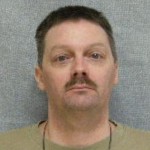7th Circuit rejects civil appointment request
By: Eric Heisig//May 1, 2014//

A Wisconsin inmate who tried to argue he needed an attorney to represent him in a civil case had his case shot down Wednesday by the 7th U.S. Circuit Court of Appeals.
The opinion affirmed that litigants aren’t always afforded attorneys in civil cases.
Jeffrey Olson, 46, sued staff at the Columbia Correctional Institution in 2012, claiming they did not heed warning signs and move Olson’s cellmate, Thomas Russell, before Russell attacked Olson and damaged one of his teeth.
Olson, who is in prison for sexually assaulting a child, requested that Western District of Wisconsin Magistrate Judge Stephen Crocker appoint him an attorney; Crocker refused.
The case was thrown out in 2013, with Crocker’s order stating correctional staff members had no reason to suspect Russell would attack Olson. Olson appealed, arguing that Crocker should have appointed counsel.
But the appellate court, in a three-judge decision authored by Judge Diane Sykes, decided Olson did not meet the criteria to have an attorney appointed. Even though he was pro se and claimed that his depression and adult hyperactivity disorder prevented him from properly representing himself, he never explained why that would hurt him, according to the opinion.
According to the opinion, his claim was simple enough for him to litigate and “Olson’s submissions to the district court were much better than the average pro se litigant’s and compare well to some pleadings filed by licensed attorneys.”
Olson also argued that he couldn’t properly litigate his case because he was moved to a different prison, but the court did not accept that argument either, stating he “hasn’t explained why the transfer affected his ability … .”
According to the judges’ opinion, “We doubt that talking to other inmates would have helped him investigate the facts in dispute – issues about the defendants’ state of mind – and anyway he made no request for information from inmates at his former institution.”
Olson further tried to appeal on grounds there was evidence showing that prison staff was indifferent to potential harm Russell could inflict on him. The court shot down that argument, as well.
Scott Fisher, a Chicago attorney with Neal, Gerber & Eisenberg LLP who was appointed to represent Olson on appeal, declined to comment Thursday. His client is scheduled to be freed from Wisconsin DOC custody in 2047.
According to Wednesday’s opinion, Congress doesn’t provide attorneys for inmates, but rather “it gave district courts discretion to ask lawyers to volunteer their services in some cases.”
“Whether to recruit an attorney is a difficult decision: Almost everyone would benefit from having a lawyer, but there are too many indigent litigants and too few lawyers willing and able to volunteer for these cases,” according to the opinion. “District courts are thus placed in the unenviable position of identifying, among a sea of people lacking counsel, those who need counsel the most.”
And while much has been made about appointment of counsel in similar cases – most recently in Wisconsin with a petition to appoint attorneys in all civil cases – no such attempts have been made locally for federal courts.
Western District clerk of court and part-time Magistrate Judge Peter Oppeneer said that through the district’s bar about 10 attorneys have expressed willingness to take on pro bono cases if a federal judge deems an appointment is necessary. The attorney is reimbursed some costs through money set aside by the bar, he said.
It generally hasn’t been difficult to get lawyers to take these cases, he said, since very few attorneys are appointed by judges in civil cases.
“There have been efforts to expand the pool and appointments,” Oppeneer said, “but we don’t want to necessarily waste people’s time for cases that are meritless.”
He said Western District judges see about 270 lawsuits filed by inmates a year, and that they make up the majority of pro se cases.
Eastern District Magistrate Judge Pat Gorence said about 50 individual attorneys and 15 law firms have said they would take pro bono civil cases if they were appointed.
“We generally do not have a problem,” she said, “recruiting attorneys who will volunteer as pro bono counsel for those who need an attorney.” Follow @eheisigWLJ
Legal News
- Former law enforcement praise state’s response brief in Steven Avery case
- Eric Toney announces re-election bid for Fond du Lac County District Attorney
- Former Wisconsin Democratic Rep. Peter Barca announces new bid for Congress
- Republicans file lawsuit challenging Evers’s partial vetoes to literacy bill
- More human remains believed those of missing woman wash up on Milwaukee Co. beach
- Vice President Harris returning to Wisconsin for third visit this year
- Wisconsin joins Feds, dozens of states to hold airlines accountable for bad behavior
- Trump ahead of Biden in new Marquette poll
- Bankruptcy court approves Milwaukee Marriott Downtown ‘business as usual’ motion
- New Crime Gun Intelligence Center to launch in Chicago
- Arrest warrant proposed for Minocqua Brewing owner who filed Lawsuit against Town of Minocqua
- Wisconsin Supreme Court justices question how much power Legislature should have
WLJ People
- Power 30 Personal Injury Attorneys – Russell Nicolet
- Power 30 Personal Injury Attorneys – Benjamin Nicolet
- Power 30 Personal Injury Attorneys – Dustin T. Woehl
- Power 30 Personal Injury Attorneys – Katherine Metzger
- Power 30 Personal Injury Attorneys – Joseph Ryan
- Power 30 Personal Injury Attorneys – James M. Ryan
- Power 30 Personal Injury Attorneys – Dana Wachs
- Power 30 Personal Injury Attorneys – Mark L. Thomsen
- Power 30 Personal Injury Attorneys – Matthew Lein
- Power 30 Personal Injury Attorneys – Jeffrey A. Pitman
- Power 30 Personal Injury Attorneys – William Pemberton
- Power 30 Personal Injury Attorneys – Howard S. Sicula











